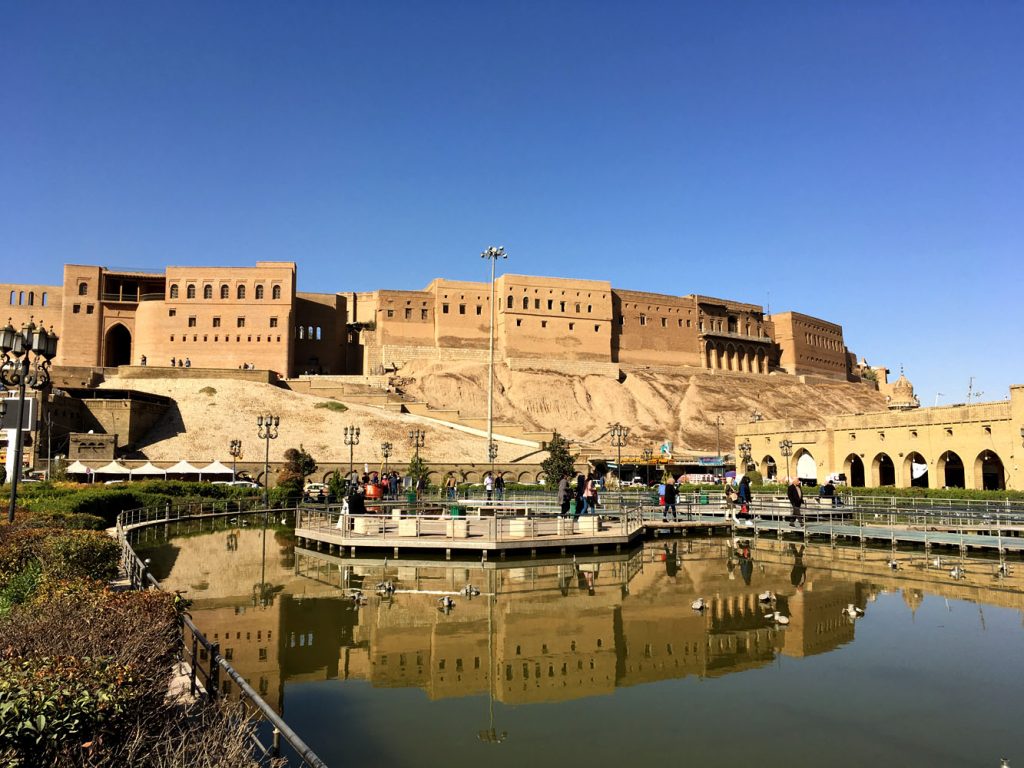
Hiking in Iraq? A very bad idea, many will think. And they’re right, for the most part. As far as security and stability are concerned, large swathes of the country are still in a shambles and particularly unsafe for foreigners due to the risk of violent attacks and kidnapping. Much of Iraq is off-limits to the curious solo traveller.
But of course Iraq isn’t the same everywhere. The northern part, ruled by the Kurdistan Regional Government (KRG), is so different it might as well be a different country. The Kurds run their own affairs in most areas and most foreigners can easily enter the country as a tourist without a visa for 30 days. Iraqi Kurdistan, as it’s unofficially referred to, has largely escaped the chaos and civil war that has ravaged the rest of Iraq. Much of Kurdish-controlled Iraq is fairly safe to visit for foreigners, with the exception of some of the mountainous areas bordering Turkey and Iran, and the constantly shifting southern border with “Arab” Iraq where the ING (Iraqi National Guard) is in control.
The bigger cities in Iraqi Kurdistan like Erbil, Sulaymaniyah and Dohuk are a far cry from the troubles and terror that still haunt Baghdad, Kirkuk, and Mosul today. Shiny new shopping malls, luxury hotels, hipster coffee shops, bustling bazaars, and modern airports with international flights to Europe and elsewhere make these places feel and look more like somewhere in the UAE or Saudi Arabia, not Iraq.
Having visited northern Iraq several times before, I remembered an absolutely breathtaking landscape and extremely friendly people. In the fall of 2018, Wen and I managed to drive our VW van all the way from Europe and I had the chance to explore some of the mountains a bit more up-close. We spent a lot of time in and around the southeastern city of Sulaymaniyah (nicknamed Suly for short), where we had some local contacts. Suly sits right at the edge of the Zagros Mountains and is a great base for exploring the surrounding mountains. It’s also a very attractive city to visit, mostly because of its amazingly friendly and hospitable inhabitants. I can’t remember how many times we were invited for tea or walked out of a shop with the owner refusing to accept payment!
Other places where you could set up your headquarters to explore the mountains nearby include Choman (for Halgurd, Iraq’s second highest peak), Soran (bigger with better facilities), Rawanduz (very picturesque setting, great canyon walks), and Zakho and Dohuk in the northwest. Another good central location is Shaqlawa, a small town about an hour north of Erbil that has quite a few decent hotels and restaurants and is popular with Iraqi tourists in the hot summer months.
But no matter where you go for hiking in the mountains – at the end of the day this is Iraq after all. There are some important caveats and limitations that should be considered when planning a hike in this part of the world. From my own experience, the three most important things to keep in mind are:
- Security situation and politics. While northern Iraq has been relatively stable since the fall of the Saddam regime, regional tensions have flared up in the past resulting in temporary border closures. Obviously, things can change very quickly in this part of the world. Thoroughly check the security situation, current visa regulations, etc. before heading there.
- Landmines and UXO’s (unexploded ordnance). Tons of landmines, mortar shells and other UXO’s remain from the bloody war that Saddam Hussein waged on the Kurds in the 80s as well as the Iraq-Iran war. It’s imperative to ask around before hiking anywhere in Iraq. Asking the locals is the best advice, but even they don’t always know every nub and peak, so a small risk remains.
- Hiking as a recreational sport is still in its infancy in Iraq. Many people, especially in rural parts of Iraq, will not understand why someone would be walking up a mountain or along a ridge “just for fun”. This can cause bemusement at best, or lead to outright hostility at worst. In one instance we camped at the base of a mountain at the end of a dirt road when a villager showed up and started shouting frantically, then proceeded to shoot with his rifle. It’s hard to communicate what you’re doing as a hiker (or camper), especially if you don’t speak the language. Areas that are private land are usually unmarked and some locals can be very protective of their plots. They might even suspect criminal/terrorist activity at the sight of a bunch of foreigners hanging around on some barren mountain slope. The best advice is to talk to people – let them know you’re there and what you’re doing, and ask if it’s ok to walk up that mountain or sleep in that nice sheltered valley.